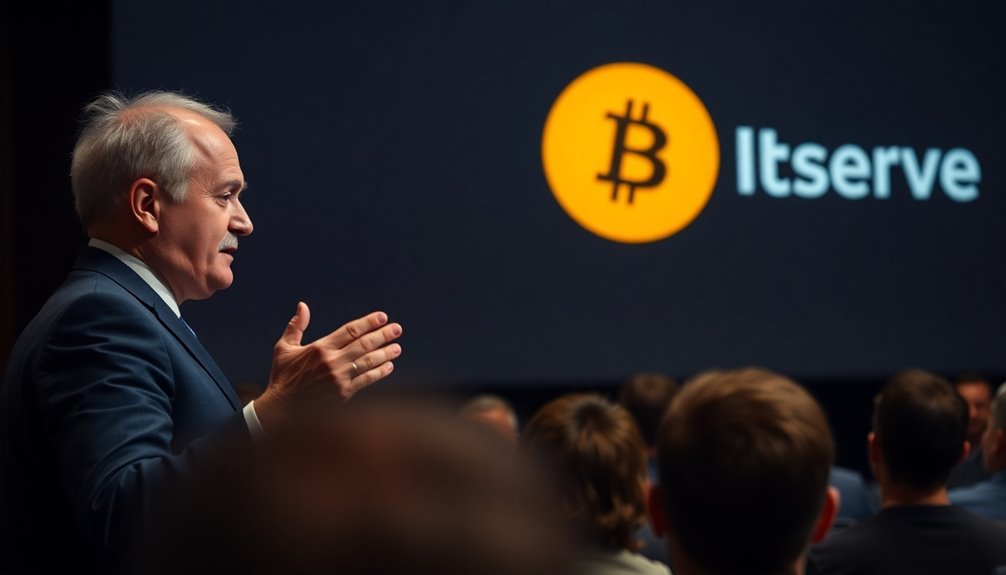Peter Schiff's recent critique of Bitcoin as a reserve asset raises significant concerns about its stability and the motivations behind its promotion. He argues that the cryptocurrency's volatility makes it a questionable choice for large-scale adoption. With Schiff pointing out potential risks and economic disruptions, you might wonder how this perspective aligns with the growing interest in digital currencies. What implications does this have for the future of Bitcoin and its advocates?

In the realm of financial discourse, skepticism often fuels debate, and Peter Schiff's recent critique of Bitcoin as a potential reserve asset exemplifies this dynamic. You might find it intriguing that many Bitcoin enthusiasts initially misinterpreted Schiff's comments as a form of support, considering his acknowledgment of Bitcoin as "digital gold." However, his true stance reveals a deep skepticism about its viability as a reserve asset, criticizing Bitcoin promoters for what he perceives as fraudulent behavior aimed at inflating prices.
Schiff's concerns don't stop there. He warns about the economic instability that could arise from establishing Bitcoin as a reserve. Imagine a world where excessive dollar printing leads to devaluation, potentially paving the way for hyperinflation. The very idea of large-scale Bitcoin purchases intended to combat these risks could ultimately destabilize markets further.
You may wonder how continuous purchases to maintain Bitcoin reserves could lead to catastrophic economic outcomes, something Schiff unequivocally predicts. He specifically questions the rationale behind the support for a Bitcoin reserve, emphasizing that he never supported it.
When you consider the implications of using Bitcoin as a reserve asset, you can't overlook its inherent volatility. Schiff emphasizes that Bitcoin's inability to sustain growth and provide stability poses significant risks. If you think about traditional reserve assets, Bitcoin's speculative nature becomes even more apparent. Unlike gold, which has a long-standing history of stability, Bitcoin seems to falter under scrutiny.
Schiff argues that this volatility creates liquidity concerns, making it an unreliable choice for financial institutions.
Political and legislative developments surrounding Bitcoin add another layer of complexity. Recent proposals, including Trump's suggestion to include Bitcoin in U.S. crypto reserves and Senator Cynthia Lummis' advocacy for a gradual acquisition, have sparked debates about potential economic benefits. However, Schiff isn't convinced. He views these moves as fraught with regulatory challenges and questions the benefits against the risks involved.
Market reactions to these discussions have been telling. You might've noticed the recent surges in Bitcoin prices and the overall cryptocurrency market cap reaching $3.03 trillion. Yet, along with this growth comes heightened volatility and increased speculative trading activity, which Schiff warns could lead to market crashes following government interventions.










